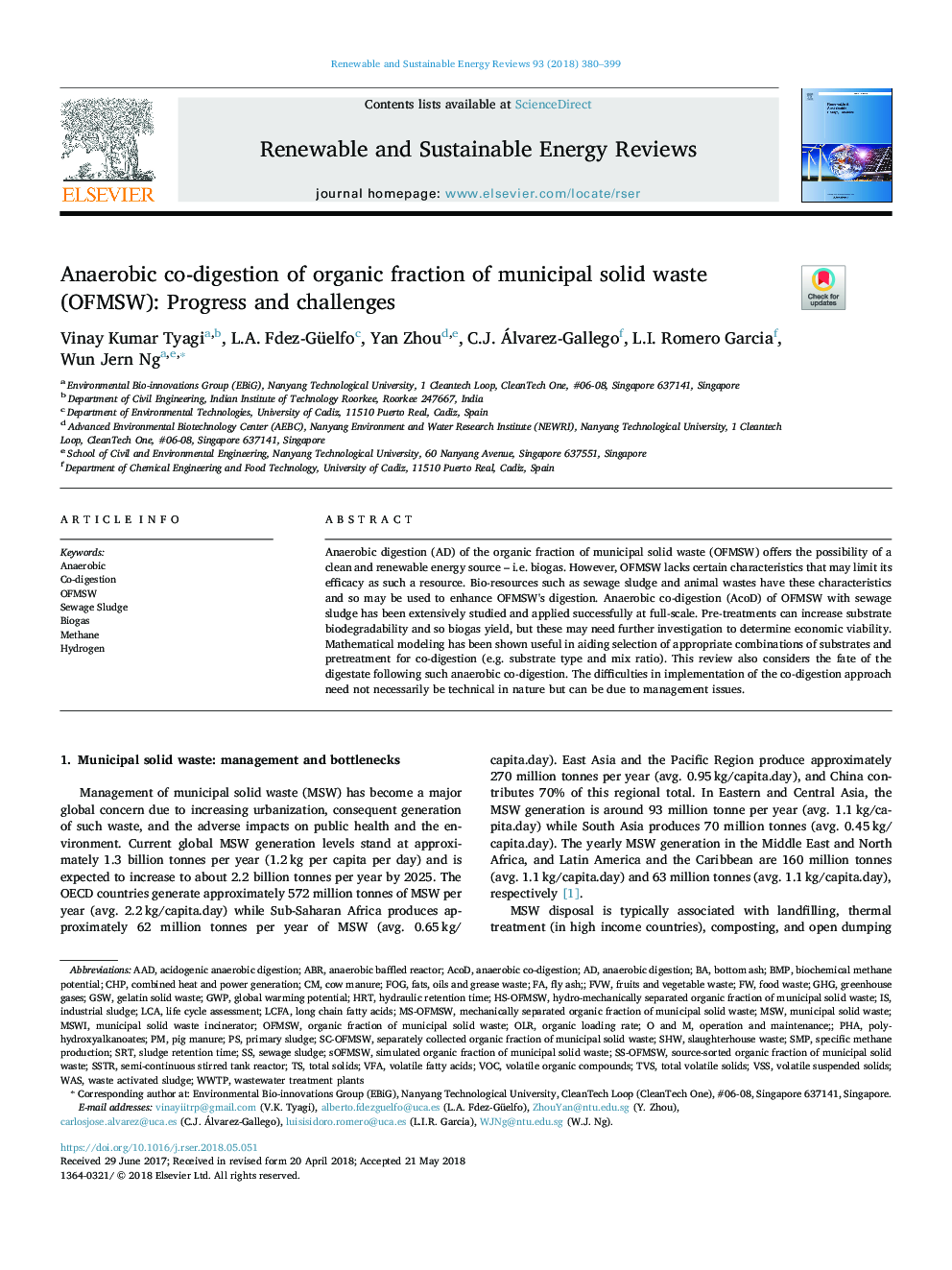| Article ID | Journal | Published Year | Pages | File Type |
|---|---|---|---|---|
| 8110724 | Renewable and Sustainable Energy Reviews | 2018 | 20 Pages |
Abstract
Anaerobic digestion (AD) of the organic fraction of municipal solid waste (OFMSW) offers the possibility of a clean and renewable energy source - i.e. biogas. However, OFMSW lacks certain characteristics that may limit its efficacy as such a resource. Bio-resources such as sewage sludge and animal wastes have these characteristics and so may be used to enhance OFMSW's digestion. Anaerobic co-digestion (AcoD) of OFMSW with sewage sludge has been extensively studied and applied successfully at full-scale. Pre-treatments can increase substrate biodegradability and so biogas yield, but these may need further investigation to determine economic viability. Mathematical modeling has been shown useful in aiding selection of appropriate combinations of substrates and pretreatment for co-digestion (e.g. substrate type and mix ratio). This review also considers the fate of the digestate following such anaerobic co-digestion. The difficulties in implementation of the co-digestion approach need not necessarily be technical in nature but can be due to management issues.
Keywords
TVSMSWVOCHRTPHAOLRLCFAOFMSWABRAADsRTSSTRMSWIPolyhydroxyalkanoatesSHWGSWAcoDFVWGHGVFAWWTPGWPCHPVSsLCALife Cycle AssessmentLong chain fatty acidsVolatile fatty acidsWASAnaerobicBiogasVolatile organic compoundsSpecific methane productionCombined heat and power generationTotal solidsFly ashBottom ashSMPAnaerobic baffled reactorMunicipal solid wasteMunicipal solid waste incineratorFood wasteSlaughterhouse wasteSludge retention timehydraulic retention timeoperation and maintenanceSewage sludgePrimary sludgeIndustrial sludgeWaste activated sludgeMethaneBMPFogVolatile suspended solidsOrganic loading rateAnaerobic digestionAnaerobic co-digestionCo-digestionHydrogenbiochemical methane potentialglobal warming potentialorganic fraction of municipal solid wasteTotal volatile solidsPig manureCow manureGreenhouse gasesWastewater treatment plants
Related Topics
Physical Sciences and Engineering
Energy
Renewable Energy, Sustainability and the Environment
Authors
Vinay Kumar Tyagi, L.A. Fdez-Güelfo, Yan Zhou, C.J. Álvarez-Gallego, L.I. Romero Garcia, Wun Jern Ng,
